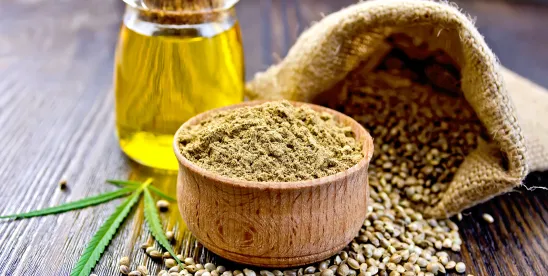Another legislative session has come and gone in Mississippi (a limited, short special session is all but a certainty, as the Legislature passed no state budget), resulting in tweaks to the Mississippi Medical Cannabis Act (MMCA) and a failed consumable hemp regulatory bill. Those happenings, along with others we discuss below, prove that efforts remain underway to improve a medical cannabis program that, while still relatively young, finds itself in its third-year post legalization. And, while no watershed changes were made in 2024 or 2025 to the program, positive developments did occur. That’s something, which reminds me of wise words from native Mississippian William Faulkner: “Given a choice between grief and nothing, I’d choose grief.”
The first four years have likely caused many in the medical cannabis industry to suffer some grief, but isn’t that better than nothing at all? I would think so, especially when you look to Mississippi’s neighbors to the east (hello, Alabama) and north (howdy, Tennessee) – where nothingness plagues the medical cannabis world at the moment.
MMCA Tweaks
Via Sen. Kevin Blackwell’s Bill SB 2748, the MMCA changed in two notable ways. First, the method of calculating a Mississippi Medical Cannabis Equivalency Unit (MMCEU) for concentrates and infused products changed as follows:
- As of July 1, 2025, one unit of MMCEU for concentrates will be equal to one gram of total THC in a medical cannabis concentrate. The previous language stated a unit of MMCEU for concentrates was based on one gram of the concentrate itself.
- As of July 1, 2025, one unit of MMCEU for infused products is now equal to one gram of total THC in an infused product. The previous language stated a unit of MMCEU for concentrates was based on 100 milligrams of THC.
A unit of MMCEU for flower remains as 3.5 grams of the flower itself. Patients are allowed to purchase up to 24 MMCEUs of medical cannabis in a 30-day span and can possess up to 28 MMCEUs at one time.
Second, SB2748 eliminated a requirement for in-person, initial practitioner assessments of patients who are “homebound or bedbound as certified by a practitioner other than the practitioner making the written certification.”
Consumable Hemp Products Bill Fails by One Vote
Rep. Lee Yancey’s HB 1502 aimed to significantly restrict the types of hemp-derived products that could lawfully be sold in Mississippi by authorizing only “consumable hemp products” and hemp beverages. The bill defined “consumable hemp products” in a way to basically only authorize cosmetic-type products and CBD-laden products that are not capable of producing an intoxicating effect. The hemp beverages would have been regulated within the purview of Mississippi’s existing light beer and wine statutory and regulatory regimes and be limited to 12-ounce containers containing no more than 5 milligrams of THC per container. But, as stated, HB1502, while passing the House, failed to move through the Senate by one single vote. Mississippi, once again, finds itself with no mechanism in place to regulate (i.e., testing, age-gate, or otherwise control) the consumable hemp products being sold across the state.
Mississippi Remains at the Forefront of Cannabis Research
If you’re still reading this, you are most certainly familiar with the fact that Mississippi, at its flagship university, housed the only federally sanctioned marijuana growing facility for decades. While the quality of the marijuana being grown there received its fair share of criticism, Mississippi still can claim being home to the lion’s share of government-funded cannabis research for as long as government-funded cannabis research has existed. Thankfully, research is ongoing outside of Mississippi now, but Mississippi isn’t ready to relinquish that research crown just yet. Not only has the Mississippi Legislature appropriated funding for research, Ole Miss recently announced that it will house an expanded cannabis research center at its Oxford, Mississippi campus. Specifically, the Resource Center for Cannabis and Cannabinoid Research (R3CR) will research cannabis in the existing National Center for Natural Products Research at Ole Miss, supported in part by a grant partnership led by the National Center for Complementary and Integrative Health. Several other organizations will provide collaborative assistance, including the National Institutes of Health, Washington State University, and the United States Pharmacopoeia.
Conclusion
As of this writing, the state’s medical cannabis program resource reports 56,231 active medical cannabis cards. And the Department of Revenue recently released its 3rd Quarterly Retail Sales Report for Fiscal Year 2025, showing that sales of medical cannabis are up 61% from this time in Fiscal Year 2024 (up $32,347,752). With medical cannabis only having been sold for less than two and half years in Mississippi, those numbers, while businesses wish they were higher, are at least trending in a positive direction. Circling back to the Faulkner quote from above, another legendary Mississippi author, Eudora Welty, left us with words that seem just as appropriate: “it doesn’t matter if it takes a long time getting there; the point is to have a destination.”




 />i
/>i
